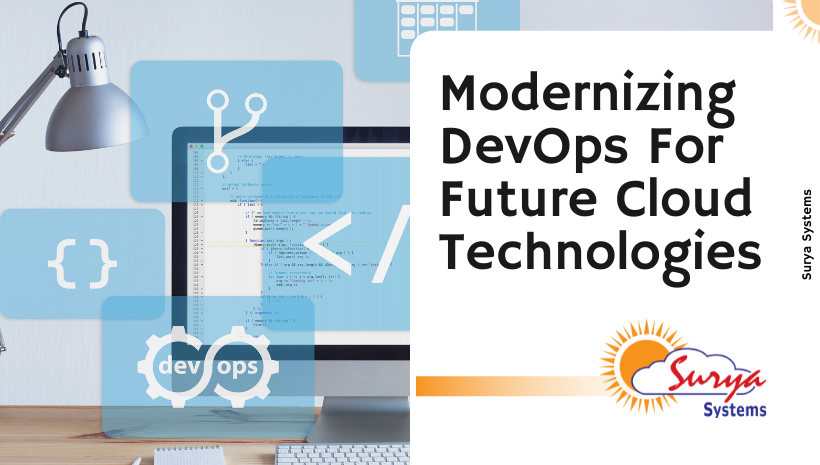- December 2, 2021
- Posted by: Sean Cooper
- Category: Cloud Technologies

Modernizing DevOps:
Since the beginning of the decade, the technology community has been enthusiastic about DevOps. This is because it improves the stability and speed of software development and deployment. Business leaders realized that DevOps was more than just a practice for IT teams; it was a way to get their products or services to customers quicker and with fewer defects while making systems more reliable and resilient.
As it supported current business shifts, the pandemic was a catalyst for DevOps’ continued success. Developers were encouraged to build and deploy applications at an increasing rate due to product and service innovation acceleration. Code Fresh surveyed the impact COVID-19 had on companies and their DevOps strategies. 58% of respondents moved parts of their infrastructure to cloud computing, while 17% migrated all their stacks to cloud computing. As new technologies like Kubernetes gain traction, organizations are also investing heavily in DevOps automation.
Enterprises have already seen significant benefits from DevOps when they use it for their on-premise applications. These include a faster time to market, higher quality, and reliability, which has resulted in customer loyalty, retention, and even better service. Enterprises want to reap the same benefits by moving their applications to cloud computing.
Enterprises faced problems when adopting DevOps on-premise legacy apps. This resulted in lower test automation and a reduced DevOps pipeline, which limited DevOps benefits. Enterprises can plan DevOps adoption to reap maximum benefits and overcome these challenges in a planned way.
Embracing DevOps with Cloud:
DevOps complements moving apps to the Cloud so that enterprises can reap the same benefits from the Cloud. It is vital to have a strategy in place and prepare applications for cloud DevOps before migrating to the Cloud.
Cloud DevOps strategy requires three critical decisions:
These points should be considered by organizations when deciding on a cloud DevOps strategy:
First, organizations need to create a multi-cloud DevOps strategy. Many enterprises are opting for a multi-cloud strategy to increase their resilience. It is crucial to select the best DevOps strategy that will meet their needs. DevOps solutions could be cloud-specific and use services like Azure DevOps, AWS Code, or cloud-agnostic, which may require tools such as Terraform.
Enterprises should also plan a standard tooling policy. This should decide whether to use DevOps services from different cloud providers or commercial-off-the-shelf services, or open-source tools for each DevOps practice. When choosing a tool, consider your existing investments in tools and ensure cost-effectiveness. You can also leverage tools that support multiple technologies.
Get your applications ready for cloud migration success:
Enterprises should have DevOps applications prepared before moving to the Cloud. This will ensure that they are ready for DevOps quickly. They will continue to enjoy the benefits of DevOps in the Cloud.
* Apps earmarked for re-hosting should increase the tooling usage, even if they are not part of the DevOps pipeline. Test automation, static code analysis automation, and security tests using the tools must all be used to improve application safety and quality. These applications may also use to-be-state tools if the tools are not in sync.
* Applications that will be re-platformed should automate performance testing in addition to the other activities.
* The transformation journey is long and requires some cloud-native app development before the unified cloud DevOps solution can be developed. These applications should be able to automate with DevOps without any touch and use all the tools required according to their tooling strategy.
Organizations can plan for cloud migration to refresh their DevOps strategy. This will allow them to achieve maximum results at minimal cost and with low maintenance. This is a chance to correct some of the DevOps methods that were used on-premise. A unified DevOps solution will allow better control over the tools and services, resulting in more significant benefits.
